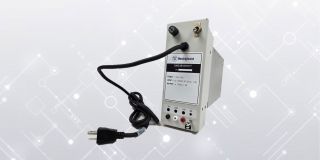As demands for a comprehensive U.S. waste management plan increase, private vendors are certifying new SNF/HLW transportation cask designs.
A large-scale campaign to move spent nuclear fuel and high-level radioactive waste in the United States to a central repository or interim storage site does not appear to be coming anytime soon. External pressures, however, including a growing number of nuclear power plant closures and increased stakeholder demand to remove stranded spent fuel and HLW, are shifting focus to building the infrastructure needed to move large volumes of waste. This includes the design and manufacture of shielded transportation casks for shipping the waste by truck or rail.
The awards will fund research into artificial intelligence and machine learning approaches to developing fusion energy, as well as fundamental theory and simulation.
The Department of Energy announced on March 4 that it will provide $30 million for new research on fusion energy. The funding will provide $17 million for research focused specifically on artificial intelligence (AI) and machine learning (ML) approaches for the prediction of key plasma phenomena, management of facility operations, and accelerated discovery through data science, among other topics. An additional $13 million under a separate funding opportunity will be devoted to fundamental fusion theory research, including computer modeling and simulation, focused on factors affecting the behavior of hot plasmas confined by magnetic fields in fusion reactors.
Introducing “Nuclear Power: Let’s Keep It Running,” a fundraiser to support students in nuclear science and technology.
 To raise awareness about safe, clean, and reliable nuclear energy and enrich the experiences of students in nuclear science and technology, ANS student sections around the country will soon be hosting a first-ever 5K fundraiser.
To raise awareness about safe, clean, and reliable nuclear energy and enrich the experiences of students in nuclear science and technology, ANS student sections around the country will soon be hosting a first-ever 5K fundraiser.
“Nuclear Power: Let’s Keep It Running” is launching on Earth Day (April 22) and will consist of an online donation platform where student sections can form teams, organize runs, and connect to donors within their communities and throughout the country. Proceeds will support ANS student section activities and the ANS Student Program.
In its ongoing effort to keep its criteria relevant, ABET has revised its student outcome and curriculum requirements.
 ABET, originally an acronym for the Accreditation Board for Engineering and Technology, is a nonprofit, nongovernmental organization that accredits college and university programs in the disciplines of applied and natural science, computing, engineering, and engineering technology. ABET accredits degrees at the associate, bachelor’s, and master’s levels. Over the years, the organization has expanded its domestic and global accreditation presence, and it currently accredits over 4,000 programs in 32 countries.
ABET, originally an acronym for the Accreditation Board for Engineering and Technology, is a nonprofit, nongovernmental organization that accredits college and university programs in the disciplines of applied and natural science, computing, engineering, and engineering technology. ABET accredits degrees at the associate, bachelor’s, and master’s levels. Over the years, the organization has expanded its domestic and global accreditation presence, and it currently accredits over 4,000 programs in 32 countries.




 ABET, originally an acronym for the Accreditation Board for Engineering and Technology, is a nonprofit, nongovernmental organization that accredits college and university programs in the disciplines of applied and natural science, computing, engineering, and engineering technology. ABET accredits degrees at the associate, bachelor’s, and master’s levels. Over the years, the organization has expanded its domestic and global accreditation presence, and it currently accredits over 4,000 programs in 32 countries.
ABET, originally an acronym for the Accreditation Board for Engineering and Technology, is a nonprofit, nongovernmental organization that accredits college and university programs in the disciplines of applied and natural science, computing, engineering, and engineering technology. ABET accredits degrees at the associate, bachelor’s, and master’s levels. Over the years, the organization has expanded its domestic and global accreditation presence, and it currently accredits over 4,000 programs in 32 countries.